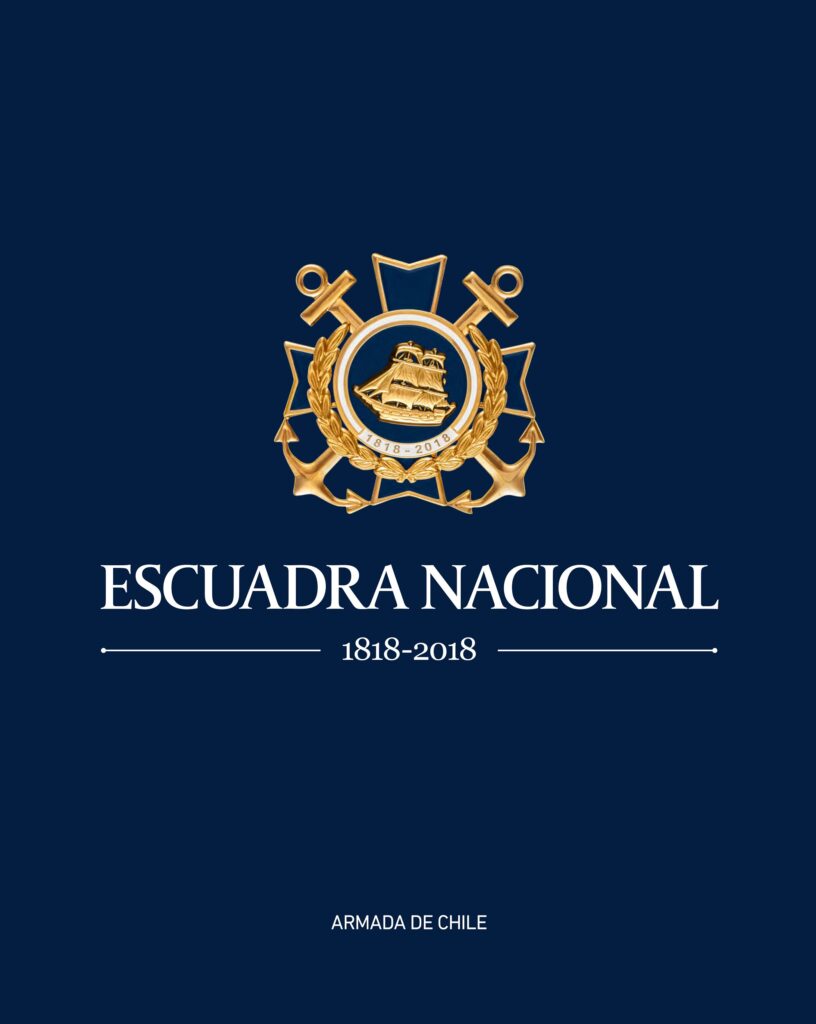El Nacimiento de la Escuadra Nacional’. En: Rodrigo Moreno (editor), Escuadra Nacional 1818-2018 (Santiago, Corporación del Patrimonio Cultural de Chile-Banco Santander, 2018).
“The founding of the Chilean Navy is not the product of an administrative act but of a political decision, taken amid a war aimed at consolidating the freedom of Chile and the United Provinces of the Río de la Plata through the elimination of the Spanish presence in the viceroyalty of Peru. For this reason, it is not registered in any decree or law. In the beginning, the figure of General Bernardo O’Higgins stands out very clearly. His father, governor of Chile and later viceroy of Peru, sent him to study in Lima and London, where he came into contact in 1798 with General Francisco de Miranda, a prestigious Venezuelan revolutionary who had tried to gain Britain’s support to initiate the definitive liberation of Latin America. Miranda’s influence on O’Higgins would be decisive, especially for fostering in him a republican ideal.”
“Although Miranda’s emancipation plan was not executed, it possibly circulated among his disciples, including O’Higgins, and that through secret societies reached general José de Santa Martin. The latter was empirically convinced that the long road to Lima, through Upper Peru, would not allow strategic objectives to be achieved to consolidate the independence of its homeland and neighbouring countries. The organization of a military force in Cuyo to liberate Chile first, was carried out on the basis of the local population, to which the remains of the Chilean army that had taken refuge in that province after the defeat in Rancagua in October 1814, were added . San Martin’s knowledge and experience, together with Bernardo O’Higgins leadership and commitment, ensured that, in spite of the scarcity of resources, this initiative was successful. San Martin was able to introduce false news about an imminent invasion through several points, which, together with the actions of the privateers under the command of William Brown, resulted in the dispersion of the royalist forces, and led Governor Marcó del Pont to take repressive measures that increased the unpopularity of his cause among the Chilean population.”
“Cochrane’s command of the Fleet was foundational, because his attachment to offensive and bold action created a school or behaviour that would endure for the rest of the century in the conflicts in which this naval force was involved, and placed a challenge for the following generations. The strategic concepts developed in the time of O’Higgins and Cochrane became integral part of the professional acquis of the Chilean Navy. His departure and the fall of the O’Higgins’ government on 28 January 1823 constituted a setback in the process of independence because many serious unresolved issues remained, such as bringing an end to the viceroyalty and ending the Spanish control of Chiloé.”
